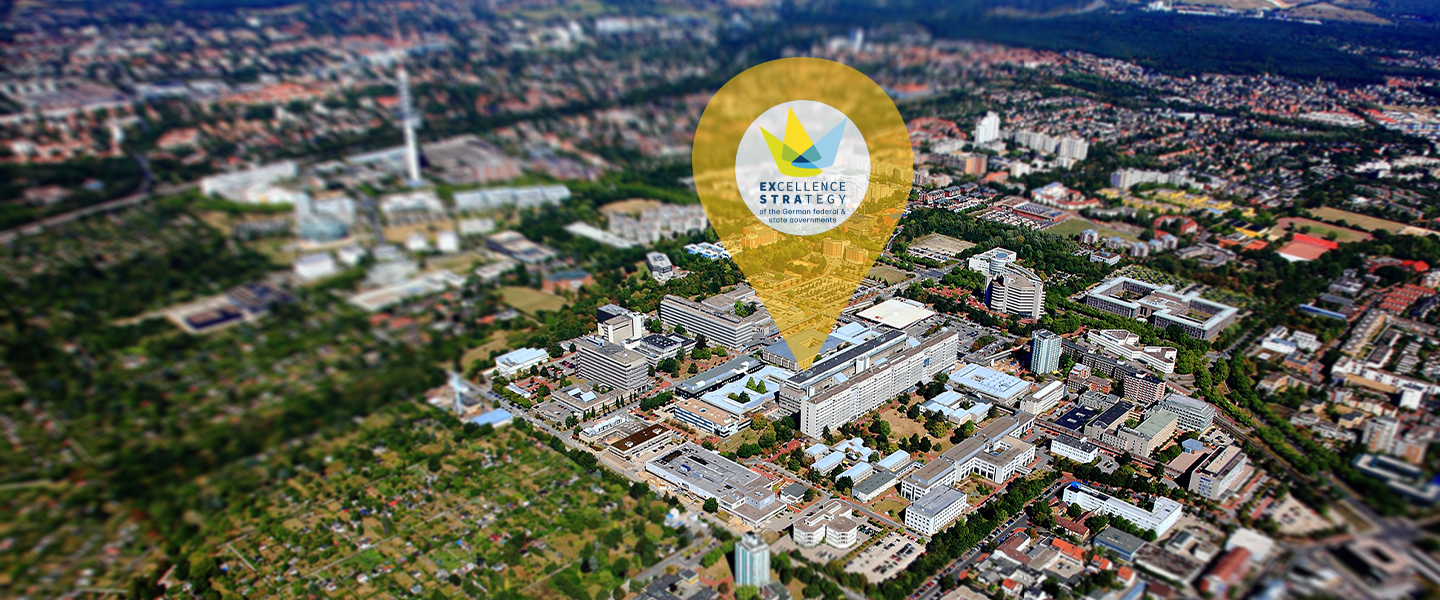
Excellence Strategy of the German Federal and State Governments
The Excellence Strategy of the German Federal and State Governments serves to sustainably strengthen and further develop Germany as a centre of science.
Since the start of the calls for proposals in 2006, MHH has been represented by several Clusters of Excellence, thus consolidating its position as a leading institution in the German research landscape. The Hannover-Braunschweig-Göttingen region provides the ideal breeding ground for diverse collaborations between the universities and research centres located there. With the HBRS as a graduate school and the structured doctoral programmes offered there, the MHH took on a pioneering role as early as 2000.
Currently, preparations for the next funding period are already underway. The funding lines are divided into:
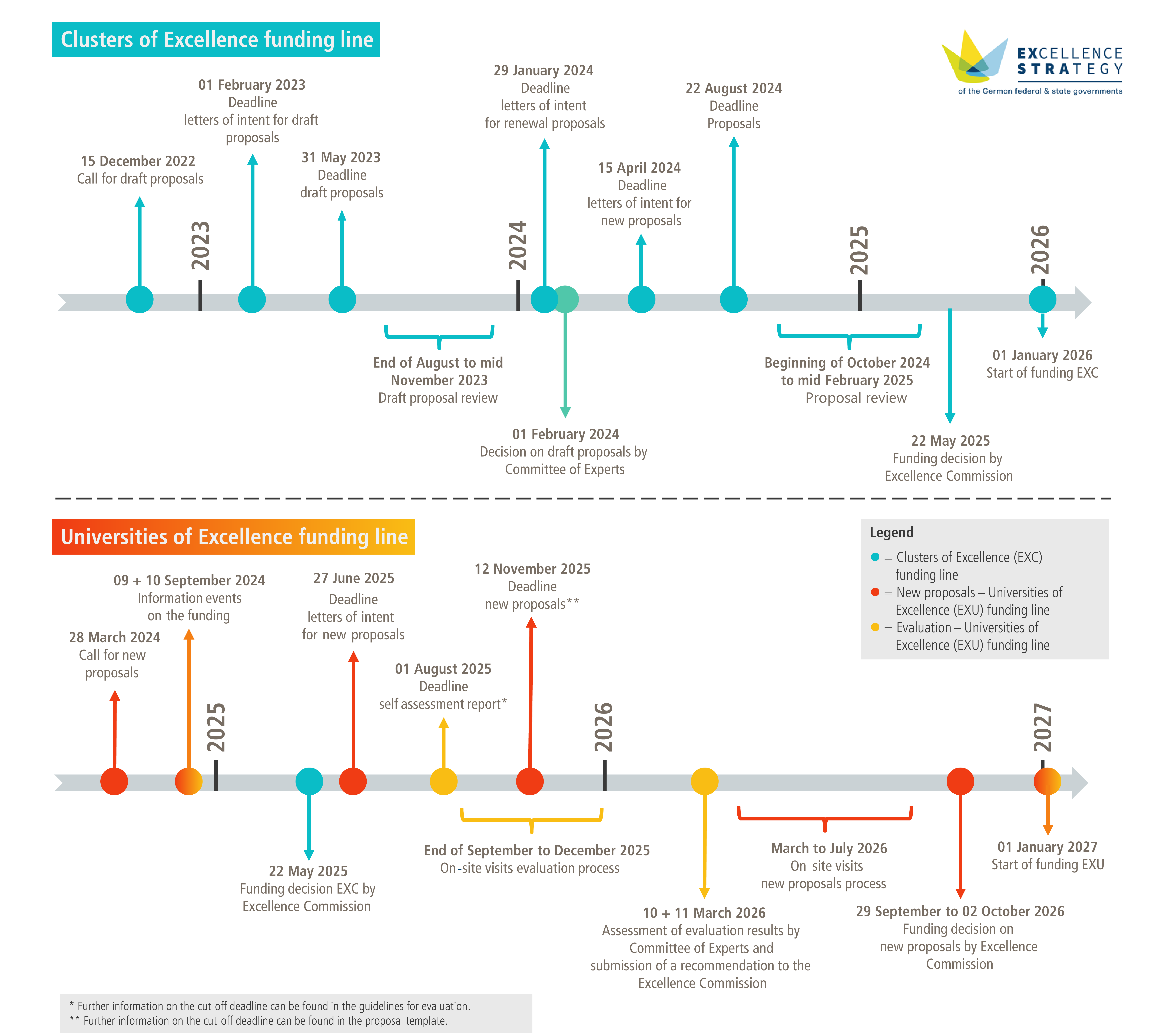
Clusters of Excellence (EXC)
Within the framework of the Cluster of Excellence funding line, internationally competitive research networks are being established. At the MHH and its partner institutions, Hearing4All and RESIST have been established in this way, as well as the expired Cluster of Excellence REBIRTH. In the new funding period from 1 January 2026, both new Clusters of Excellence and existing ones can be funded for a second funding period of seven years.
Universities of Excellence (EXU)
The funding line Universities of Excellence has the mandate to strengthen individual universities or alliances in the long term in order to increase their international appeal.
At the start of the new funding period in 2027, four new funding cases will be selected in addition to the existing universities of excellence. As with the clusters of excellence, funding will be provided for seven years. An evaluation will take place at the end of each funding period.
Both funding lines go hand in hand: researchers in the clusters of excellence strengthen the profile of the university within the research priorities, whereas the university of excellence is an impulse generator for future clusters.
Further Information
The Excellence Strategy of the German Federal and State Governments on the webpages of the DFG
Preparations for the main application on 22.08.2024
Funding Line EXC

The EXC RESIST and Hearing4All will submit extension applications. In addition, the MHH is submitting another possible EXC: R-CUBE - Organ Regeneration, Repair and Replacement.
R-CUBE is a translational research consortium that aims to strengthen clinical practice and research in advanced organ failure and thus improve patient care. Current therapies are symptomatic, and the lack of donor organs places an additional burden on patients and their families. R-CUBE will develop multimodal diagnostic tools for a personalized form of treatment that will support organ regeneration and repair and offer novel strategies for organ replacement. As world-leading center for patients with organ diseases, the transplantation spectrum of MHH ranges from abdominal and thoracic organs to stem cells.
Further Information
Excellence Strategy: 41 Draft Proposals Selected for the Next Clusters of Excellence Round
Excellence at MHH
RESIST - since 2019
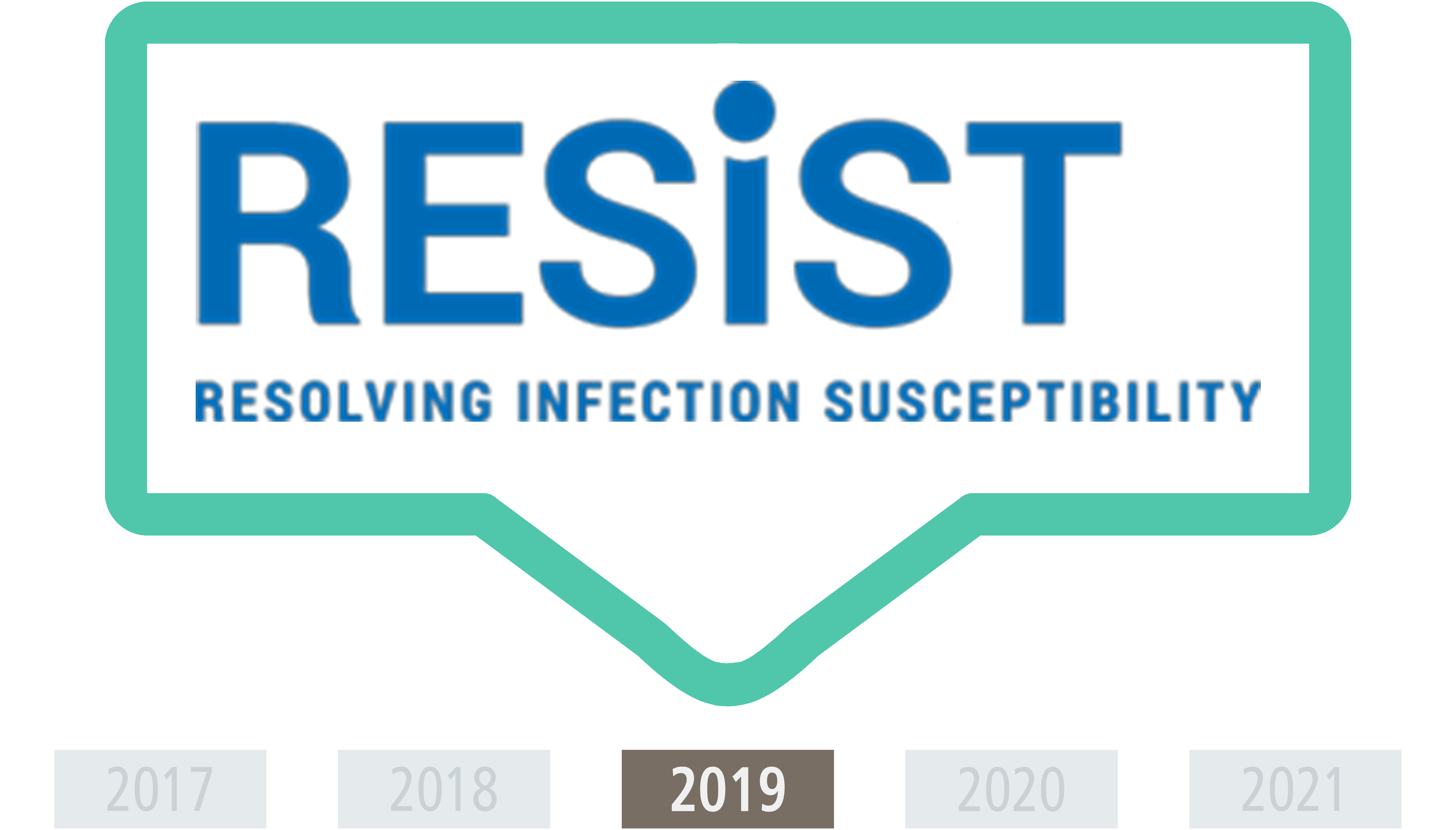
Some people only get slightly ill when they "catch" viruses or bacteria, but others get very seriously affected. But why do infections manifest themselves so differently?
The special thing about RESIST is the close and fruitful relationship between the doctors, who mainly work in the clinic and know the patients' situation very well, and the researchers, who are investigating the fundamentals in order to enable better prevention, diagnosis and treatment.
In order to be able to help patients, basic and clinical research are combined in RESIST - above all with the help of existing and newly established cohorts.
Further Information
On the webpages of RESIST
Hearing4All - since 2012
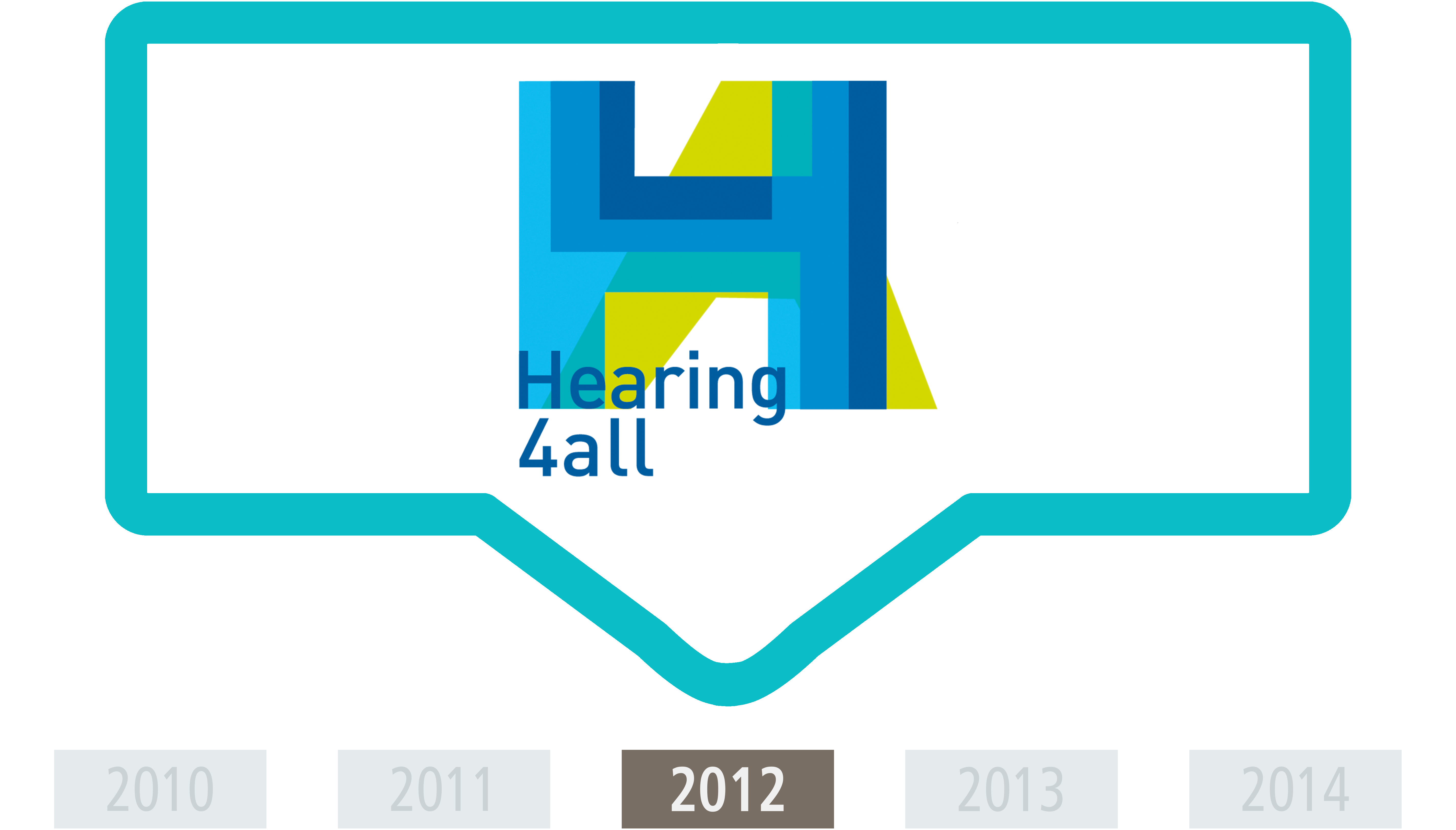
The goal of the Cluster of Excellence "Hearing4all" is literally "hearing for all". By improving individualised hearing diagnostics and the corresponding provision of personal hearing aids, the scientists want to improve the communicative situation of those affected decisively.
In order to make "hearing for all" a reality, the part of the population that has an age-related progressive hearing loss but has not yet been diagnosed ("subclinical population") must also be taken into account.
By incorporating technology originally developed in the field of technical hearing aids into conventional consumer electronics (mobile phones, video conferencing systems, televisions, etc.), we are devising solutions that will catch such hearing loss at an early stage.
Further Information
On the webpages of Hearing4All
REBIRTH - 2006 until 2019
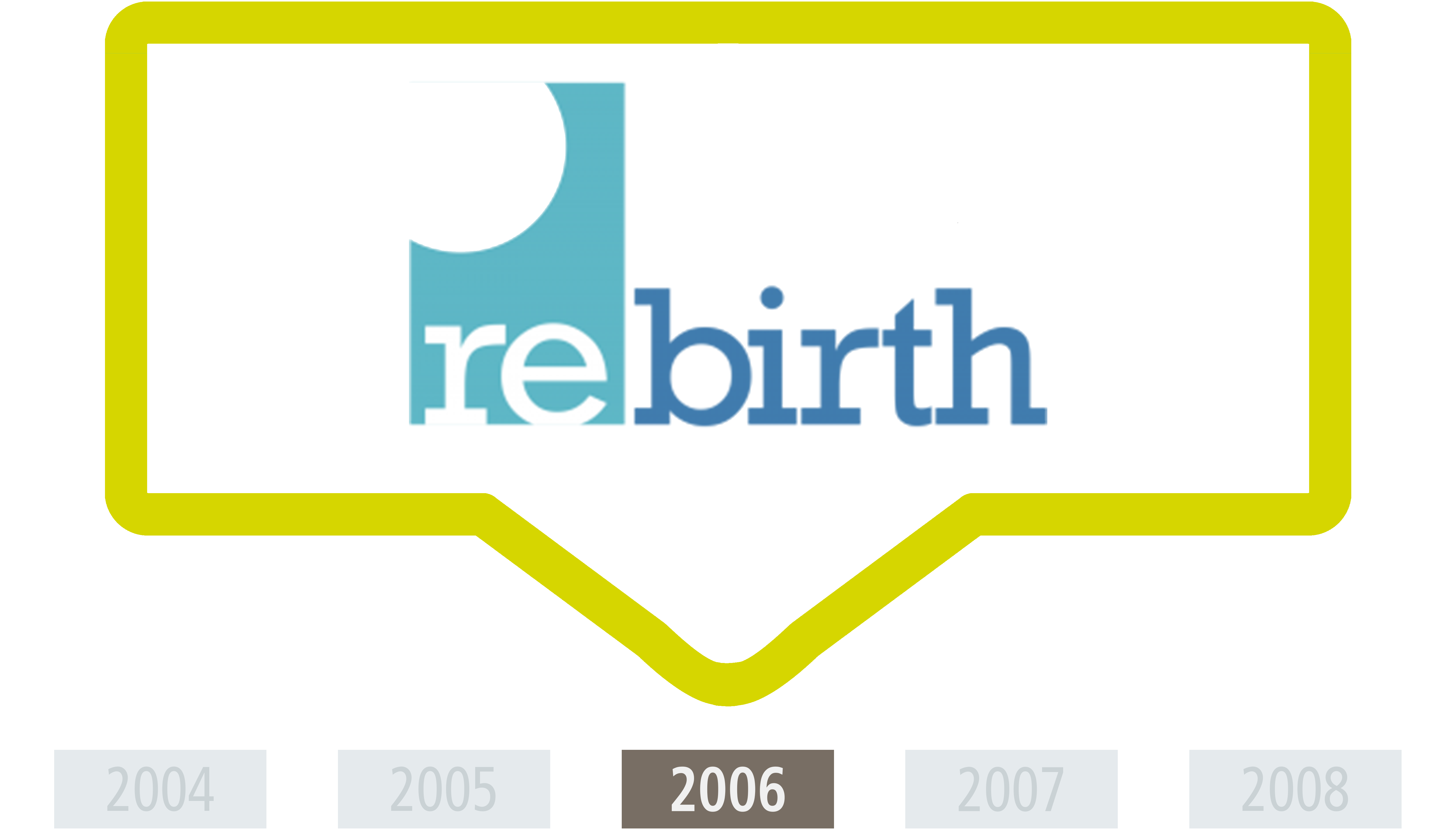
From Regenerative Biology to Reconstructive Therapy - REBIRTH. This Cluster of Excellence was formed with outstanding support from six strong partners. The programme integrated excellent education with innovative science and experimental as well as clinical medicine. Interactive basic research projects were designed to identify cellular and molecular mediators to stimulate regenerative processes.
Both intrinsic and milieu-dependent mechanisms controlling epigenetic programming, cell expansion, differentiation, migration, organogenesis and disease-dependent regeneration received attention.
Stimulated by these findings, innovative approaches for regenerative therapies were tested using novel (preferably postnatal) cell sources modified by genetic, epigenetic or matrix-based principles.
Further Information
On the webpages of REBIRTH
HBRS - since 2000

Founded in 2000, the interdisciplinary Hannover Biomedical Research School (HBRS) orchestrates all existing and future MD/PhD programmes.
The HBRS coordinates the programmes and stands for excellent education, promotes integration and motivation while promoting the interdisciplinary exchange of young scientists.
The education of students is complemented by a range of international guest lecturers and summer schools. In 2006, the HBRS was awarded the title of "Excellence" in the Graduate Schools funding line of the Excellence Initiative. Since 2023, the HBRS has been embedded in the Dean's Office for Academic Career Development in order to optimally support future scientists.
Further Information
On the webpages of HBRS
MHH - Site of Science
Academic Career Development and Research Profile
Since its foundation, the MHH has developed into one of the most distinguished biomedical institutions in Germany. It is not only a supra-regional reference centre, but is also known and respected beyond national borders in the fields of severe, complex and rare diseases. The MHH pursues the goal of providing top performance in the long term with a targeted focus. These top performances are based on the three established research foci "Infection & Immunity", "Transplantation & Regeneration" and "Biomedical Engineering & Implants" as well as the new area of potential "Oncology".
In the Excellence Initiative funding programme for the promotion of top-level university research (2005-2018) by the federal and state governments, the MHH was successful in two funding lines: on the one hand, in the Graduate School funding line with the Hannover Biomedical Research School (HBRS, 2006-2012) and, on the other hand, in the Cluster of Excellence funding line with EXC REBIRTH (2006-2018) and in the second programme phase with EXC Hearing4All (2012-2018). In the Excellence Strategy funding programme (first phase 2019-2025), the MHH was successful in obtaining the Cluster of Excellence EXC RESIST and the extension of EXC Hearing4All (2019-2025). The next round of the Excellence Strategy (2026-2032) is expected to build on this success. In addition, MHH then competed together with LUH (Leibniz University Hanover) in the Excellence University funding line as part of the Leibniz Alliance Hanover (LEAH) university network. The LEAH joint application was among the last 18, but unfortunately not among the 11 funded applications.
Founded in 2000 and awarded a prize in the Excellence Initiative 2006, the HBRS is a graduate school that combines various support programmes at the level of doctoral training, especially for natural and medical scientists. In addition, the entire support of young researchers at the MHH is integrated under the umbrella of the Dean's Office for Academic Career Development. The existing Clinician Scientist Programmes such as Junge Akademie, PRACTIS and TITUS for medical scientists as well as Advanced Clinician Scientist Programmes such as the pilot project CORE100PILOT (funded by EKFS and the state of Lower Saxony) are anchored under this umbrella, and new initiatives such as programmes for the advancement of Medical Scientists, especially in the area of advanced scientists, have been launched. The Dean's Office, in cooperation with the FWT2 administrative department, will also actively identify highly qualified medical scientists and young researchers and support them in applying for individual excellence funding, such as the DFG's Emmy Noether and Heisenberg programmes. The MHH also aims to significantly improve its commitment to the successful acquisition of ERC grants and to provide individual support to eligible applicants during the application process.
